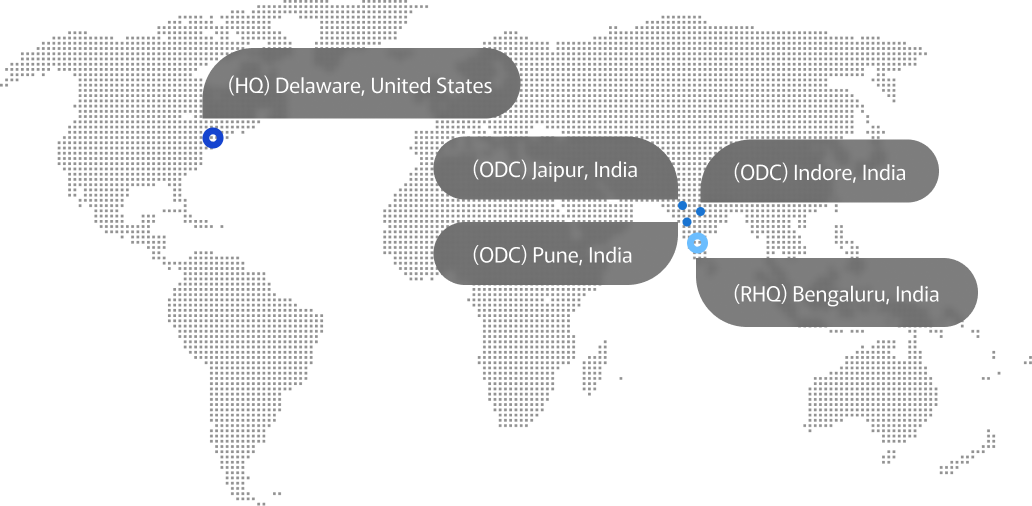
- Cloud-Based Application
Top Cloud-Based Applications Every Business Should Use in 2024
Are you overwhelmed by paperwork and feeling disconnected from your customers? One transformative solution is using Cloud-Based Applications. These days, Cloud-Based Applications have become more than just tools; they are now considered fundamental partners in business. But what exactly are they? Essentially, they are services that can be reached directly from your web browser without the need for heavy installations, managing complicated software updates, or buying powerful hardware. It allows you to rent out computing power such as servers, storage, databases, analytics, and intelligence along with networking capabilities and software typically via the Internet.
Businesses that use cloud technology experience 20% more productivity and save on average 30% of their IT costs. This isn’t just about keeping up—it’s about leading the way in your field. Advayan’s professional Salesforce consultancy service offers guidance on how best to utilize cloud applications within your organization so that each day presents new chances for growth and development.
We will explore deeply how adopting Cloud-Based Applications is not only a technological upgrade but also positions your company strategically against an ever-changing environment that threatens its survival in future times ahead. Whether starting up or already established players within your industry; understanding these ideas behind cloud computing is critical at all levels if achievements towards this direction were to be made possible within any given enterprise context. This calls for us to look into different ways through which such programs could address common problems faced during normal operations while also opening up avenues for innovations across various sectors within any business entity.
Table Of Content
- Types of Cloud Services
- Challenges of Cloud-Based Applications
- Benefits of Cloud-Based Applications
- Conclusion
Types of Cloud Services
Let’s talk about the different types of Cloud-Based Applications that are currently transforming operations in business. Infrastructure as a Service (IaaS), Platform as a Service (PaaS), Software as a Service (SaaS), Database as a Service (DBaaS), and Containers as a Service (CaaS). Each one of these caters to specific needs while presenting different advantages which in turn enable better scalability models. Now let’s see how you can use these solutions to drive your business into 2024 and beyond.
Infrastructure as a Service (IaaS)
Infrastructure as a service changes everything when it comes to managing technological resources within an organization. What this means is that with infrastructure-as-a-service, you can access virtual servers, storage systems, and networks – all hosted by your provider on the internet. The beauty behind IaaS is that it gives flexibility and cost savings because instead of buying hardware upfront companies can rent what they need for their projects from public or private clouds accessible through APIs or dashboards. This offers them more control over their IT environment while still being able to scale easily when required.
Platform as a Service (PaaS)
The second type of cloud service model we will look into is Platform-as-a-Service which takes care of every part involved in application development without having to worry about managing underlying infrastructure components like operating system etcetera. PaaS provides an environment where developers can build applications faster since they don’t worry about setting up servers themselves or dealing with other technicalities that come along with hosting web services. Also, platforms offer ready-made modules such as databases which can be easily integrated into existing systems thus enhancing functionality without much system maintenance overhead.
Software as a Service (SaaS)
Software delivered over the Internet has been around for some time now through what we call Software-as-a-Service(SaaS). Instead of installing software on individual computers, Saas allows users to access same-level functionality remotely from their devices via web browsers. In this case, applications run on remote servers managed by external vendors who handle updates maintenance, and security so that users need not worry about these things themselves. For enterprises, the biggest advantage is cost savings since buying licenses becomes unnecessary while still being able to use advanced tools like CRM systems CMSs office suites etcetera without having to hire additional staff to take care IT side of things. Scalability avails another benefit benefits associated with models.
Database as a Service (DBaaS)
Database as a Service which perfects data management by hosting databases on cloud platforms. What this means is that there are no physical hardware requirements needed such as servers or storage devices neither software installation nor complex configurations required during the setup process. Scaling up and down becomes much easier because resources can be adjusted dynamically based on demand levels thanks to the better performance offered under DBaaS environments. Not only does it provide stronger security features aimed at safeguarding integrity but also requires less effort when handling large volumes of information.
Containers-as-a-Service (CaaS)
Containerization has changed how developers work in terms of managing applications within different environments but the introduction of Container-as-a-service (CaaS) takes it another notch higher. CaaS ensures that users can upload organized run scale stop containers using container-based virtualization technologies seamlessly hence making deployment faster and, less cumbersome, especially where microservices architecture has been adopted by organizations either wholly or partially. Additionally with CAAS operational agility increases since companies now can easily switch between various stages of development cycles depending on their needs while ensuring optimal resource utilization.
Challenges of Cloud-Based Applications
- Downtime – Introducing Cloud-Based Applications makes it vulnerable to downtime. Since these applications are accessed through the internet, any unforeseen internet or technical disruptions can cause major business interruptions. During such times, all cloud-hosted applications and data become unreachable which poses a critical operational challenge.
- Control- Relinquishing control over the underlying infrastructure is what Cloud-based applications do. The management and operation of the cloud infrastructure are entrusted to the service provider by the organization thereby losing direct oversight. This lack of control over backend infrastructure may make it challenging to align with specific organizational requirements and ensure optimum performance.
- Security: Robust security measures become harder to maintain with the increasing deployment of cloud applications. Continuous tracking of IT infrastructure’s security posture becomes very necessary for protecting against potential cyber threats. Making sure that Cloud-Based Applications remain invulnerable to cyber-attacks calls for constant vigilance as well as proactive security measures which are quite demanding.
Benefits of Cloud-Based Applications
- Cost Efficiency: Cloud-based application implementation is a method of reducing cost by which it permits swiftness without heavy investment at the beginning stage into IT infrastructure. Changeable cost models are provided by cloud services that enable businesses to pay for only what they have used in terms of storage or computing power hence allocating resources more efficiently.
- Reliability: Uptime and availability levels for applications are guaranteed through the strong infrastructure of service providers. Businesses can rely on clouds to keep their activities running with minimal disruption because there are standby servers for backup which help in dealing with unscheduled service failure thereby improving reliability and reducing downtime.
- Streamlined Management: Cloud Management Platform (CMP) solutions make it possible to manage different cloud environments where various services or applications reside within one organization easily. The fact that Advayan adopted CMPs shows how easily it can be managed when deployed as a Cloud-Based Application, this means enterprises can monitor all their cloud activities from one point and also optimize their performance accordingly.
Conclusion
The revolution of the cloud is here and companies that accept Cloud-Based Applications have a great chance to grow and change. If you partner with a cloud consultancy service such as Advayan, you will be able to tap into the knowledge and advice necessary for maneuvering through an ever-changing cloud environment. Allow us to assist in unleashing all of the possibilities that come with Cloud-Based Applications so your business can move confidently toward safety and success in the upcoming years. Get in touch with us now if you want more information on what we do or how partnering with Advayan could benefit your company’s use of cloud computing power!





